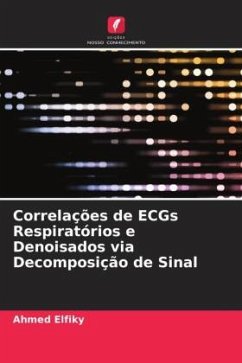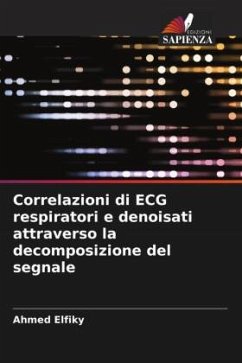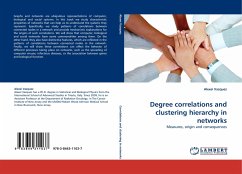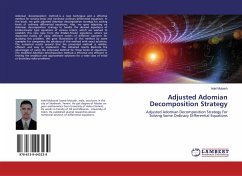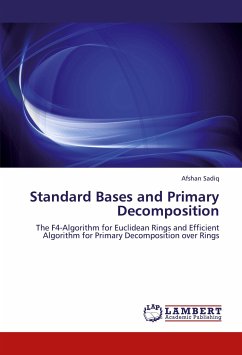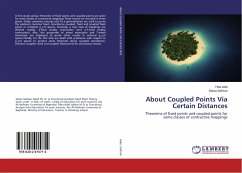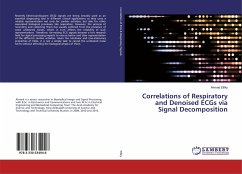
Correlations of Respiratory and Denoised ECGs via Signal Decomposition
Versandkostenfrei!
Versandfertig in 6-10 Tagen
47,99 €
inkl. MwSt.

PAYBACK Punkte
24 °P sammeln!
Recently Electrocardiogram (ECG) signals are being broadly used as an essential diagnosing tool in different clinical applications as they carry a reliable representation not only for cardiac activities, but also for other associated biological processes, like respiration. However, the process of recording and collecting them has usually suffered from the presence of some undesired noises, which in turn affects the reliability of such representations. Therefore, de-noising ECG signals became a hot research field for signal processing experts to ensure better and clear representation of the dif...
Recently Electrocardiogram (ECG) signals are being broadly used as an essential diagnosing tool in different clinical applications as they carry a reliable representation not only for cardiac activities, but also for other associated biological processes, like respiration. However, the process of recording and collecting them has usually suffered from the presence of some undesired noises, which in turn affects the reliability of such representations. Therefore, de-noising ECG signals became a hot research field for signal processing experts to ensure better and clear representation of the different cardiac activities. Given the nonlinear and non-stationary properties of ECGs, it is not a simple task to cancel the undesired noise terms without affecting the biological physics of them.



